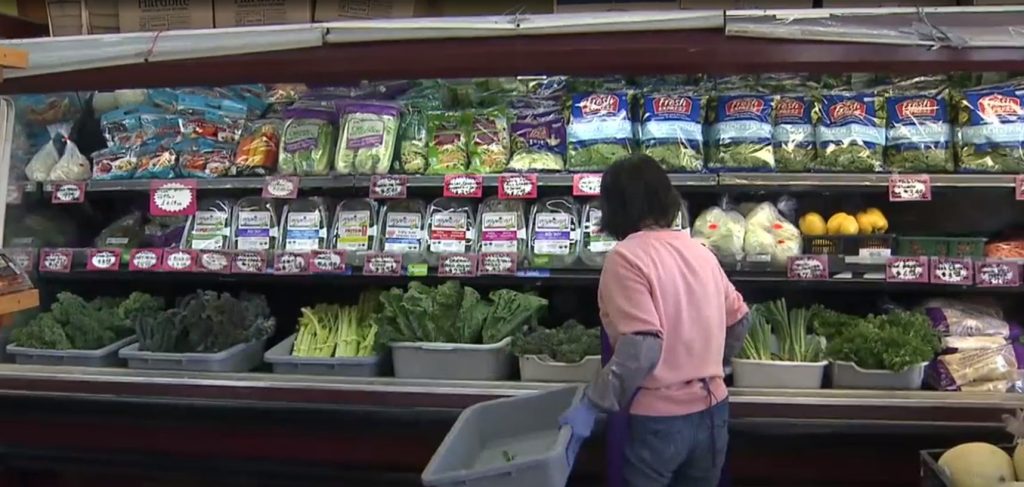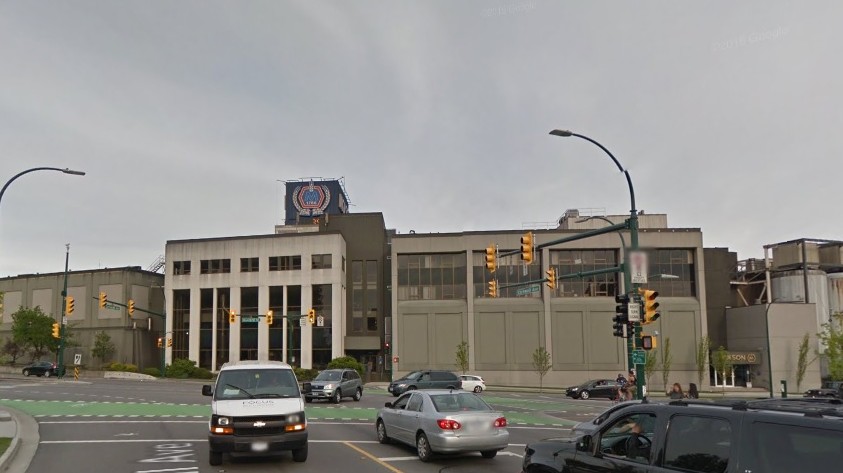With the economy unstable and the U.S.-imposed trade war with Canada taking yet another turn with newly imposed tariffs, there’s a sad snapshot of just how badly British Columbians are struggling financially.
Anastasia French, managing director of Living Wage BC, tells 1130 NewsRadio that a large portion of workers don’t make enough to cover essentials like food and rent, jeopardizing their ability to live in British Columbia.
“The living wage for Metro Vancouver is currently $27.05 an hour, and one-in-three workers don’t earn that,” she said.
“When we drill down a bit more into those stats, we found women were much less likely to earn a living wage than men, and racialized workers were much less likely to earn a living wage than white workers, and half of all racialized women in Metro Vancouver don’t earn enough of an income that means they can afford to pay the bills.”
The term ‘worker’ refers to anyone with a job, not just those who work at minimum wage, French clarifies.
“There are all sorts of workers doing all sorts of jobs like food service, which is very low paid, but then also you’ve got workers in construction, entry-level office jobs, and all sorts of industries that pay less than the amount you actually need to earn. One-in-five workers earn less than $20 an hour, which is grossly lower than what the living wage is,” she explained.
B.C.’s unemployment rate in June, the most recent figure, was 5.6 per cent, down from May’s rate of 6.4 per cent.
French says collecting employment insurance (EI) may help, but it’s nowhere near enough.
“EI is below the living wage as well, depending on how much you contributed in … so if you’re unemployed, times are even tougher because you’re not getting any employment income to get you through these difficult times, and you’ve still got rent to pay and food to pay for,” she said.
“Even if you are employed, times are tough, and I think it really reflects how times are tough for absolutely everyone.”
That also includes young people, as youth unemployment rates are also higher than in previous years.
“I think, unfortunately, there’s also a stereotype that it’s OK to pay youth less than to pay older workers,” explained French.
What hasn’t changed, in French’s opinion, is the rich getting richer and the poor getting poorer. She adds that executives and managers at big companies across Canada continue to be well-off, while those on the frontlines can’t make ends meet.
“The rich are receiving above-inflation pay increases year-on-year, whereas the poor are not receiving those increases to keep up with rising costs,” she said. “We are seeing some businesses make multi-million-dollar profits off the back of their workers who are making less than $20 an hour.”
French points out that both the provincial and federal governments, in their previous respective elections, campaigned on and made broad promises to address affordability, but she says little, if anything, has changed as the trade war steals their attention.
As a result, she remains confident that British Columbians will continue moving to more affordable pastures, like Alberta.
“I think that should be a warning sign to the government. We need the government to continue its work to build more affordable housing,” French said.
Late last year, Statistics Canada figures showed a big quarterly interprovincial shift with nearly 13,000 British Columbians migrating to other provinces or territories from July through September 2024. Of those, 9,589 chose Alberta.
Related:
French is offering some solutions to both levels of government.
“We need them to protect renters, so landlords don’t suddenly jack up the rent for the next person who’s moving in. We need investment and focus on B.C. farmers and B.C. small food producers to help lower the cost of food. And we need things like better transit, more affordable childcare — all of these things will help lower costs for individuals that will help take pressure off both employers and workers.”
French says people she’s hearing from are being forced to make drastic decisions to get by.
“They’re taking on additional jobs, and I don’t just mean a second job; it’s often a third or fourth job just to pay the bills,” she shared.
“It’s really interesting, when I talk to them to hear about food and which food is now deemed a luxury, and unfortunately, the most healthy food — that’s fruit, vegetables, meats, and protein — are increasingly unaffordable for people. Grapes, which once upon a time were what you would feed your kids, you can now maybe afford to feed them one grape at a time rather than a whole bunch.”
French says homelessness rates are also rising, and people are sleeping in vans or in overcrowded accommodation.
“From the low-wage workers I’ve spoken to, there’s a lot of anger. There’s also a lot of trying to be practical and trying to make decisions about how they can get by.
“I’ve also spoken to a lot of people right now who are really lonely because poverty creates isolation. You can’t afford to go out and to socialize.”
She says the other issue is that although everyone is struggling, there is one demographic that is often overlooked: single people.
“It’s really tough for those without children. One in three single people who are living on their own at the moment are living in poverty. They’ve got the highest poverty rate of anyone,” she said.
“That’s because government benefits have not been focused on them. The government has done a lot to help families with kids, whereas people without children are not getting anything, and yet they’re still dealing with high rents and high food costs. It’s also really tough for seniors.”
French says the stress is also playing into people’s mental health, which can impact physical health and lead to greater consequences for an already stressed-out health-care system.





